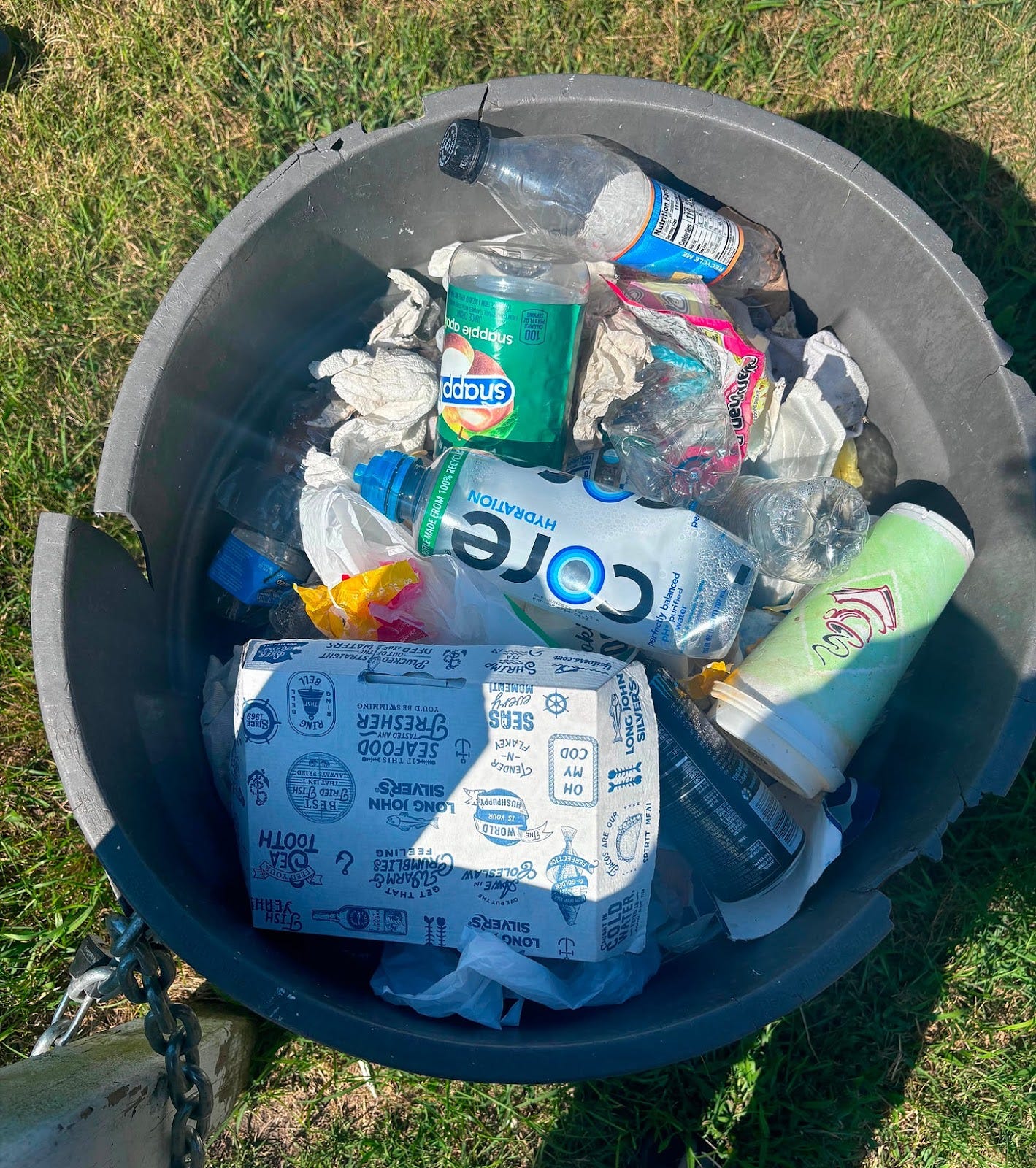Maybe the word “clean” needs to be taken out of the “Clean Water Act” and replaced with something else, like “livable” or “survivable.” Because the word “clean” seems to have struck a chord with the new administration.
These days, my inbox is filled with email after email detailing the newest deregulatory approach to water. President Trump recently released his FY 2026 budget plan, which includes a $55 million cut to the Environmental Protection Agency.
“The proposed budget would decimate federal funding levels for the Drinking Water and Clean Water State Revolving Funds (“SRFs”) – the primary federal program for funding and financing water infrastructure projects – by nearly 90%,” Don Jodrey, Director of Federal Government Relations at the nonprofit Alliance for the Great Lakes, wrote in a blog post.
Today, May 14, the Environmental Protection Agency announced plans to rollback PFAS limits in drinking water. According to nonprofit advocacy group Food and Water Watch, “The Trump administration has stacked the EPA with former executives and staff from the American Chemistry Council and lawyers who have defended companies from PFAS pollution claims.” The rollback is likely a response to a lawsuit brought against the government for imposing regulation in the first place.
We take for granted that drinking tap water likely won’t make us acutely sick in most parts of the U.S. As recent crises in Flint and Benton Harbor, Michigan, demonstrate, that privilege can change overnight. After a crisis, trust takes time to rebuild. When I was in Benton Harbor last summer, I met with residents who still don’t trust their taps — perhaps for good reason. Acute is also important here. Exposure to certain chemicals, like nitrates, likely increases cancer risk along with other health concerns. PFAS aren’t so great, either.

What does it all mean?
There is no point in being alarmist about something we can’t change. But defunding the landscape certainly does not give one peace of mind. When the Biden Administration passed the bi-partisan infrastructure law in 2021, it included $50 BILLION toward water infrastructure and water treatment.
If Trump’s FY budget plan goes through, Iowa is expected to lose -$89.13 M in federal funding. Minnesota, -$154.98 M. Illinois, -$384.79 M. Indiana, -$151.28 M. Nebraska, -$61.79 M.
Absence of funding could mean many things, but one thing it would almost ensure is a lack of progress on lead service line replacement and PFAS filtration systems (which, in the case of reverse-osmosis filters, have the added benefit of filtering out nitrate, too).
It’s worth noting that there is some resistance. On May 13, 2025, Congressman Bernie Sanders, Rep. Bonnie Watson Coleman, and Rep. Ro Khanna reintroduced a $35 billion WATER Act that would enshrine funding for water infrastructure in an annual trust fund.
Why is this in Corn Belt Confidential?
Water is very polluted in states with intense industrialized agriculture. There is literally more shit to get out of the water. Our rainfall is helpful for both growing crops and carrying pollutants downstream.
EPA has other concerns: "We are driving a dagger straight into the heart of the climate change religion to drive down cost of living for American families, unleash American energy, bring auto jobs back to the U.S. and more," EPA Administrator Lee Zeldin said of the multi-billion dollar cuts.
Last year, at a conference on industrialized animal agriculture, I was surprised to hear former Iowa Senator Tom Harkin admit mistakes he made while legislating.
“Like so many in our modern day society, we thought the environment was free. Water is free, air is free. Don't have to worry about it. You can kick the can down the road somewhere,” he said. “And that was a big mistake. There is a tremendous cost to be paid for our people, our community, our health and our wellbeing.”
Here are some recommendations from experts on water filters.




Water is essential to a healthy life and it is becoming a means to an early death. We need a government that cares about our welfare.
Clean drinking water is important for us humans, but unpolluted water is also critically important for diverse aquatic ecosystems. These are important in and of themselves - but also provide "ecosystem services" for us. Mechanistically cleaning/purifying the water before it gets to our taps is important, but what is going in in Iowa and elsewhere with fertilizers, pesticides, and even pharmaceuticals in streams and rivers is a deeper and more important issue.